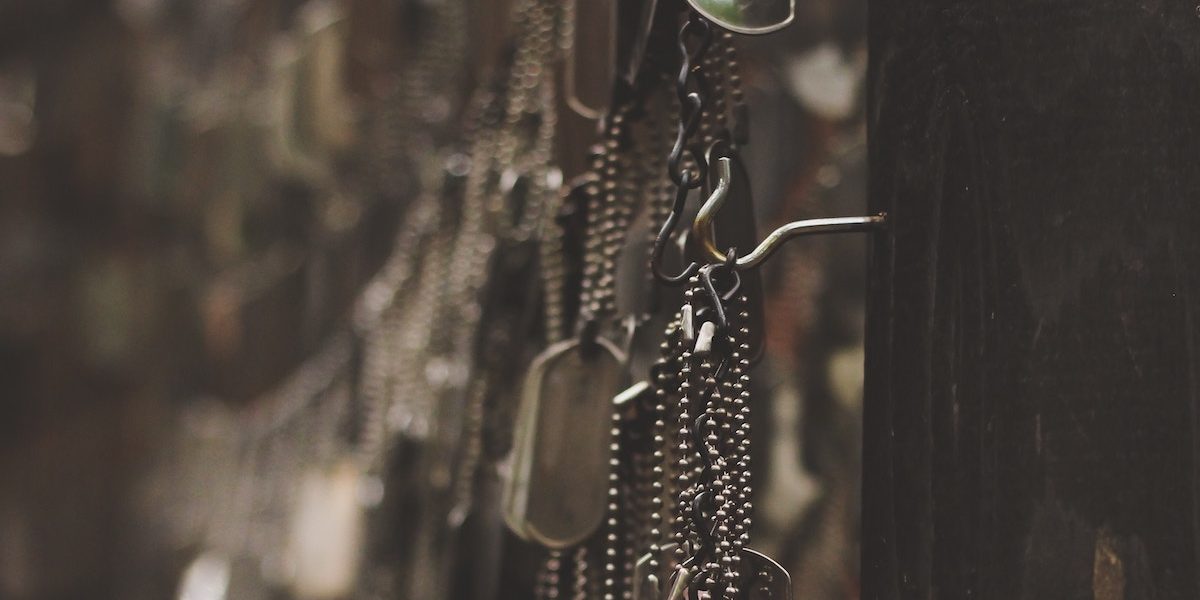(The featured image above is not actually of anyone mentioned in this article)
Mr. J was having a difficult time using his hands and feet. After developing arthritis and deformities in his joint muscles, Mr. J was forced to use special orthopedic shoes, ankle braces and a cane, and he was left unable to work, making it extremely hard to support his family in Philadelphia.
Mr. J is a veteran of the Korean War. Having served in the Army infantry, he suffered from severe frostbite during the War – the catalyst for his arthritic condition. As a veteran battling a debilitating illness, Mr. J should have been eligible for Veterans Affairs (VA) disability benefits. Unfortunately, when he applied for such benefits in 2005, the VA denied his request, noting that all of his medical record had been destroyed, and that there was no record of his injury. Mr. J tried to appeal, but to no avail. Frustrated and out of options, he sought help, and Community Legal Services was there to take his case.
CLS attorney Pamela Walz helped Mr. J file an appeal to the United States Court of Appeals for Veterans Claims and worked to provide more evidence for his claim. When the case was subsequently re-examined by the VA, Mr. J was awarded both increased benefits and back benefits. In written testimony before the Senate Judiciary Committee, Mr. J, now 84, was able to best sum up the impact that CLS had on his life: “I was able to stop worrying constantly for the first time. I could not have won my case without the help of a lawyer. I think that everyone […] should be able to get the help […] that I did.”
A Nationwide Need
Situations similar to Mr. J’s are all too common across the country. Millions of veterans in the United States receive benefits, and countless more are eligible for benefits but are not currently enrolled in a program. Every day, these veterans are faced with unexplained reductions and denials, complicated paperwork, and bureaucratic delays.
In the short term, these delays can cause aggravation. But over a longer period of time, veterans who fail to receive benefits may find themselves facing severe hardships. For example, many studies show that veterans are overrepresented in the homeless population, including a 2012 U.S. Department of Housing and Urban Development (HUD) which counted approximately 63,000 homeless veterans on a single night in January.[1] Likewise, according to the Department of Labor, the unemployment rate for young veterans returning from Afghanistan and Iraq is almost 30%,[2] a staggering number in an economy with an overall unemployment rate of roughly 8%.[3]
In general, the VA – the government agency charged with providing benefits to veterans and their families – is working to mitigate these effects. The VA provides such benefits as service-connected disability compensation, pensions, education or training, life insurance, home loans, health care, burial, and many more.
Yet, the process for applying for these benefits can be difficult to navigate, especially for the 1.7 million aging World War II veterans.[4] Veterans wishing to receive benefits must complete complicated paperwork and submit numerous and different applications for different categories of benefits.
Filling the Void in Philadelphia
The 2000 U.S. Census Bureau report indicates that Philadelphia is home to more than 80,000 veterans.[5] Veterans living in Philadelphia face the same challenges as all veterans do, homelessness, unemployment, and limited access to benefits and education. In fact, a VA study indicates that one of the most pressing issues for veterans is making contact with legal services. Just a few of the highest unmet needs among veterans include legal assistance to prevent evictions and foreclosures, legal assistance for child support issues, and legal assistance for outstanding warrants/fines.[6] These issues, if left unresolved, can exacerbate other problems veterans may have in trying to receive benefits.
CLS hopes to fill this void and offer more legal aid to veterans. With few services that offer direct support and legal assistance, veterans are an underserved population. CLS works with veterans and their families to ensure proper access to and proper payment of benefits. CLS can also help veterans navigate the VA so that they may overcome obstacles to direct services, such as housing support and education.
CLS is already fighting for veterans. Similar to Mr. J, Damon Clay sought out CLS for help appealing a reduced VA pension. Mr. Clay suffered severe frostbite in both feet after he was left in subfreezing temperatures without warm clothing or supplies during an Army training exercise in 1983.
Through the years, Mr. Clay received a modest VA disability pension, that randomly fluctuated from month to month. Eventually, Mr. Clay started to experience post-traumatic stress disorder (PTSD), which made it difficult for him to work outside or during the winter months. Then, in 2010, Mr. Clay received a notice that, because his health was improving, his pension would be cut from $720/month all the way down to $370 a month. Mr. Clay’s health had not improved, and he did not know how he could possibly make ends meet on $370 per month.
At this point, he enlisted the help of CLS attorney Samuel Brooks to appeal this reduction. Not only did Mr. Brooks help gather his client’s medical information and successfully negotiate for a much higher monthly stipend and lump sum for back benefits, but he also made sure that Mr. Clay found treatment for his PTSD so that he would again be able to live a more normal life. In his testimony to the Pennsylvania Senate Judiciary Committee, Mr. Clay stated, “My quality of life has increased immensely since seeking help from Community Legal Services.”
Now, Mr. Clay is paying these services forward, volunteering to help other veterans and counseling them so that they will better be able to work with the VA to receive their eligible benefits.






